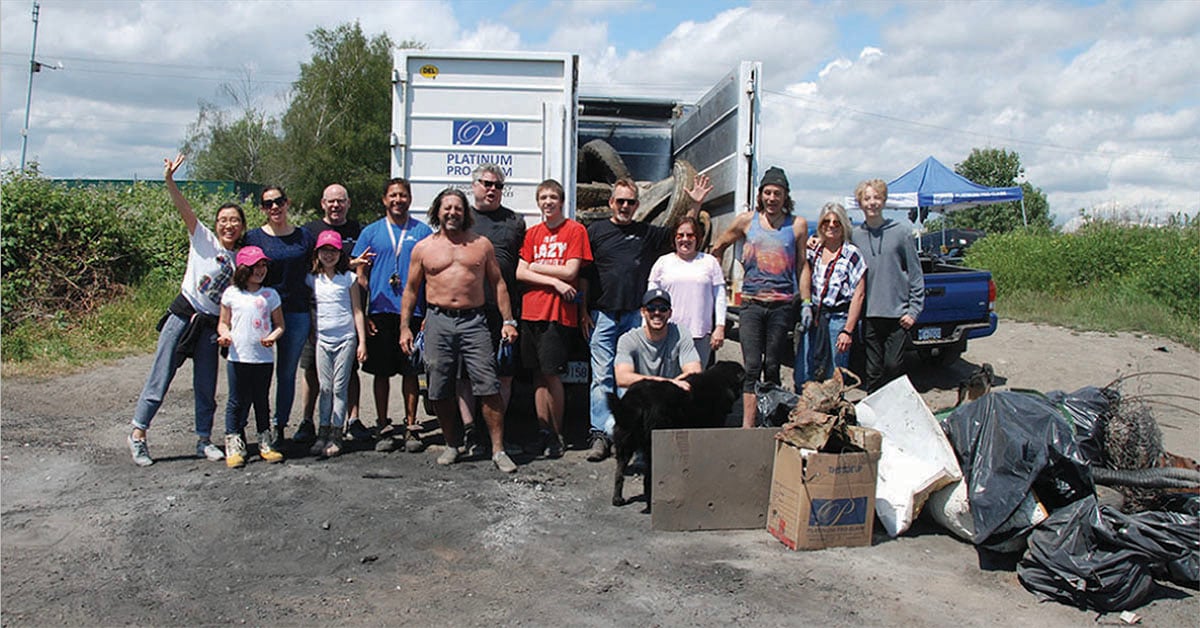

Location: Western Canada
Founded: 1991
Industry: Full-service restoration company
The push toward sustainability in restoration isn’t just an environmental decision — it’s a strategic business move. Companies like Platinum Pro-Claim Restoration (PPCR) have seen firsthand the benefits of integrating eco-friendly practices in property restoration. Here’s how they're doing it, and how you can follow suit.
MEET OUR RESTORATION EXPERT

Jamie Madill
CFO & Director of Sustainability at Pro-Claim Group
Financial upsides of eco-friendly property restoration
Cost-saving and ROI
PPCR's shift to using over 25% electric vehicles (EVs) led to a whopping $250,000 savings in fuel costs. Plus, upgrading to LED motion-sensing lighting in their facilities saves them $180 a week.
QUICK FACT: PPCR's electricity bills are lower now than they were seven years ago, despite inflation and increased operations.
“Setting up infrastructure involves upfront costs, that’s a fact. However, if you reduce your costs, you’ll make more money in the long run. Anybody with an incentive to keep their business going should be adopting these practices. There is absolutely financial benefits to going this route.”
Revenue opportunities
Beyond cost savings, PPCR’s sustainable initiatives have opened new revenue streams. They've become preferred partners for insurance companies seeking environmentally conscious contractors. This relationship not only brings in more business but also aligns with global shifts towards sustainability, giving PPCR a competitive edge in bids and proposals.
Boosting restoration employee retention and recruitment
With a labor market tighter than ever, PPCR’s commitment to sustainability gives them a unique edge. Here’s how PPCR uses this strategy:
- Promote your green initiatives: Use your sustainability commitment as a key point in job postings and interviews.
- Empower employee-led initiatives: The "Green Committee" at PPCR leads sustainability projects. This creates a work culture where employees are motivated to work in ways that reduce their environmental impact.
Madill says that keeping employees hasn't been a problem.
"We have not been subject to the ‘Great Resignation’. We do not see a lack of employees. As an employee retention strategy, it's absolutely proven itself."
Future-proofing your business
Insurance companies and regulatory bodies are increasingly favoring businesses that adopt sustainable practices. PPCR has positioned itself favorably with insurers through proactive green initiatives.
- Align with insurance goals: Engage with insurance partners to understand their sustainability targets and align your practices accordingly.
“One of the largest carriers in Canada, who is looking to get net zero over the next 20 years, has influenced how we approach our projects.”
- Adopt sustainability reporting: Start documenting your environmental impact and sustainability metrics for each job, such as waste diversion, energy usage, and fuel consumption.
- Stay ahead of regulations: Keep informed of new environmental regulations that could impact your business and adapt quickly.
Practical steps to start your sustainability journey
STEP 1: Start small: Begin with easy changes like optimizing debris disposal, choosing sustainable materials for restoration jobs, and recycling more effectively.
STEP 2: Measure your impact: Keep track of your energy consumption, fuel use, and waste management. Resources like Climate Smart or Sustainability Accounting Standards Board (SASB) standards can help.
STEP 3: Engage your team: Encouragement and rewards for sustainable initiatives can greatly enhance participation and innovation.
“The number one thing is employee engagement. They need to see that if they bring an idea forward, it gets the attention it deserves and we implement it.”
STEP 4: Avoid over analysis: Focus on impactful actions rather than getting bogged down by details.
Sustainable practices for long-term growth in property restoration
Embracing sustainability in restoration isn’t just about being eco-friendly — it’s about building a resilient, profitable, and preferred business. Start small, think strategically, and scale up your efforts. The journey towards sustainability is a marathon, not a sprint, but with every small step, you're paving the way for substantial business gains.
 By: The Encircle Team
By: The Encircle Team